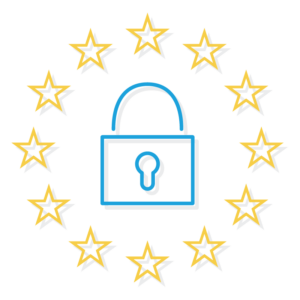Estimated reading time: 15 minutes
Learn how to delete data published by ransomware and protect your online reputation with effective strategies and quick actions.
Don’t like what Google says about you?
ReputationUP guarantees the elimination of any negative link (photos, videos, comments, content, reviews) from Google
How do ransomware attacks work?
In the digital age, data protection and online reputation management have become two sides of the same coin.
While ransomware is a growing threat to data security, the consequences of such attacks go far beyond the simple loss of information.
To best address the threat, it is important to understand what it is.
Ransomware attacks occur when malware, often sent via email or downloaded from compromised websites, encrypts user or organizational data, making it inaccessible.
Once the data is locked, hackers demand a ransom, usually in cryptocurrency, for the decryption key.
Attacks can range in complexity from simple phishing campaigns to highly coordinated operations against large organizations.
Regardless of the size of the organization, the overall number of ransomware victims has increased significantly over the years.
According to Statista, it will range from 55.1 percent of organizations in 2018 to 72.7 percent in 2023.
What happens when data is exposed by ransomware?
When data is exposed following a ransomware attack, the consequences can be devastating.
In addition to the immediate loss of access to the data, there is a risk that this information will be sold or published online.
This can include personal, financial, or sensitive business information.
Publication of such data can damage corporate reputation, leading to a loss of trust among customers, partners and stakeholders.
In addition, violating data protection regulations, such as GDPR, can result in legal and financial penalties.
Considering all the costs an organization faces when hit by ransomware, IBM estimates that the average cost will be $4.45 million in 2023.
This is an increase of +15% over the last three years.
In this context, the collaboration between HelpRansomware and ReputationUP offers a comprehensive solution to address the challenges of the digital landscape.
HelpRansomware, which specializes in remove ransomware and decrypting files, provides essential tools and services to prevent, detect and respond to such threats.
On the other hand, ReputationUP, with its extensive experience in online reputation management, focuses on protecting and restoring the digital image of affected companies.
Need help protecting your reputation?
Remove all negative content against your brand and publish positive content that re-launches your digital image
Why are hackers using ransomware to leak data?
Hackers see ransomware as a way to get the double: the ransom and the potential profit from selling the stolen data.
The threat of exposing sensitive data can encourage victims to pay the ransom more quickly.
In addition, selling leaked data can be another source of income for these criminals.
Hence, the massive spread of double extortion ransomware, where cybercriminals manipulate victims twice.
Consequences of data leakage due to ransomware attacks
Data exposure can have serious consequences for an organization’s digital reputation.
According to Fundera, 60% of small businesses that are victims of cyber attacks go out of business within 6 months of the breach.
The leaked information can be used for fraud, identity theft, or online defamation campaigns.
On the other hand, companies can suffer financial and trust losses from customers and stakeholders who may view the organization as untrustworthy or insecure, putting its financial reputation at risk.
As reported by Object First, 75% of consumers will switch suppliers if the company in question has suffered a ransomware attack.
Digging deeper into the analysis, the report shows that the percentages vary greatly by age group:
“While 37% of Gen Zers value an apology from companies (ranking 12% higher than financial compensation), Baby Boomers are less forgiving. 74% agreed their trust vendors changes completely after suffering more than one ransomware attack, compared to only 34% of Gen Z.”
To combat this, the ReputationUP Group aims to take collective action through its signatures to protect consumers.
While HelpRansomware is dedicated to protecting businesses from ransomware attacks and recovering compromised data, ReputationUP ensures that victims’ online reputations remain intact and protected.
Need help protecting your reputation?
Remove all negative content against your brand and publish positive content that re-launches your digital image
What are the legal implications of making data public?
Unauthorized publication of data can violate various data protection and privacy laws, such as GDPR.
Organizations may be required to report violations to the relevant authorities and may be subject to significant fines.
In addition, victims of the data leak may have the right to take legal action against the responsible entity, further exacerbating reputational damage.
Compliance is essential to avoid further legal complications and protect the organization’s reputation.
Consider that 70% of consumers surveyed by Cybersecurity Ventures believe that companies are not doing enough to adequately protect their data and are convinced that it could be compromised without their knowledge.
How do you identify and locate data that has leaked onto the network so you can delete it?
Identifying leaked data is the first of the tips to protect online reputation of your company.
Companies that specialize in the entire reputation funnel, such as ReputationUP, can help monitor your online presence and identify any leaks.
- Egosurfing:
A simple step that’s within everyone’s reach is to search for your name or your company’s name on search engines and see what results come up.
- Trigger a Google Alert:
Turn on Google Alert notifications for any keywords related to you or your business that appear online and you will always be instantly informed.
- Identify the website containing the filtered information:
Create an Excel spreadsheet with all the URLs corresponding to the websites where the data released by the ransomware appears.
- Contact the website administrator:
Contact the website administrator and ask them directly to delete the information, explaining the reason.
- Take legal action:
If the site does not respond or refuses to remove the information, you may want to take legal action.
- Work with online removal experts:
Contact experts in negative link removal and data recovery for a guaranteed and more effective result.
Continually monitor the Web, even after information has been removed, to ensure that the information is not republished or distributed elsewhere.
This way, you can at least get a handle on the situation on the surface web.
How do you remove data published online by ransomware?
Once sensitive data has been identified, it is imperative to act quickly to request to remove information from Google in compliance with regulations such as GDPR.
CybelAngel identified over 70 billion exposed files, including intellectual property, financial information, and sensitive data.
These figures highlight the need for constant monitoring for both businesses and individuals.
With the help of online reputation management experts like ReputationUP, you can delete news from the internet and ensure compliance with regulations like GDPR.
The key is to act quickly and proactively to minimize reputational damage.
Is it possible to delete personal information posted on a website?
Yes. It is absolutely possible to remove Google search results that contain personal information that was exposed by ransomware.
However, the process can be complex and requires a number of specific steps.
However, every website and social platform is required to have a form for reporting the possible presence or use of information shared without consent.
In addition to ransomware data recovery, removing personal information from a website can be challenging.
Do you want to delete personal and private information from the web?
ReputationUP guarantees the elimination of any personal and private information from any Web platform
With the right approach and expert help, you can protect your privacy and online reputation.
The combination of services offered by HelpRansomware and ReputationUP provides a complete solution for organizations to protect both their sensitive data and their online image.
Strategies for Removing Data Published on the Web by Ransomware
Data erasure strategies include:
- Working with cybersecurity and reputation management experts such as ReputationUP;
- Utilizing network monitoring services;
- Taking preventative measures to avoid future breaches.
Among preventative measures, the use of artificial intelligence is becoming more prevalent.
As IBM’s report highlights, the average savings for organizations that extensively use AI and automation for security is $1.76 million compared to organizations that don’t.
The advantage of these techniques is that they allow for a high degree of predictability, thus minimizing damage.
Specialized methods for removing data published by ransomware
There are companies that specialize in removing data published on the web by ransomware.
These companies, such as HelpRansomware, use advanced ransomware decryption tools and partner with online platforms to ensure data removal and prevent further publication.
These specialized methods may include scanning the dark web, negotiating with websites and social media platforms, and filing legal requests to secure data removal.
The importance of acting quickly to remove data exposed by ransomware
Acting quickly is essential to minimize reputational damage.
A prompt response can prevent data leakage, reduce reputational impact, and limit potential legal and financial consequences.
In a digital world where news travels fast, it is essential to have a risk management plan in place to address data breaches and protect your organization’s reputation.
As highlighted by Astra, 40% of companies take out cybersecurity insurance when another company in the same sector is hit by ransomware.
What are the common challenges when trying to remove published data from ransomware?
Delete online presence of personal data leaked after a ransomware attack is no easy task, and presents several challenges:
- Rapid spread: once data is leaked and published, it can be quickly copied, distributed, and stored in various locations online, making it difficult to track down and completely remove.
IBM reports that once the type of ransomware responsible for the attack is identified, it takes at least 80 days to fully contain the infection.
During this time, the hackers continue to operate;
- Uncooperative websites: many websites, especially those hosted in jurisdictions with less stringent privacy laws, may be reluctant or unresponsive to data removal requests;
- Dark Web: leaked data may end up on the dark web, a hidden part of the Internet where information is sold and traded with less control;
- Backups and archives: even if data is removed from a site, there may be backups or archives that can be republished in the future.
- Privacy regulations: compliance with privacy laws, such as GDPR, can further complicate the removal process, as organizations must ensure that data is handled appropriately;
- Hacker response: ransomware attackers may release additional data or increase their activity if they perceive that the victim is actively trying to remove the leaked information.
This list demonstrates that data security and brand reputation management are intertwined, and the collaboration between HelpRansomware and ReputationUP represents an integrated and comprehensive response to online threats.
How does data exposure affect online reputation?
Publishing data can severely damage an organization’s online reputation.
You need to remove negative information from the internet that could otherwise alienate customers and partners, cause financial loss, and damage public confidence.
AAG reports that 20% of ransomware costs are spent on reputational damage.
Proactive reputation management is essential to mitigate this damage.
Organizations must be prepared to respond quickly to data breaches, communicate transparently with customers and stakeholders, and take steps to prevent future breaches.
Tips to prevent future ransomware data theft
Preventing future intrusions and data theft through ransomware is critical to protecting an organization’s security and reputation.
Some tips include:
- Regular software updates;
- Educating employees about cybersecurity;
- Using antivirus and anti-ransomware solutions;
- Performing regular data backups.
IBM reports that 51% of organizations plan to increase security investments following a breach.
This includes incident response (IR) planning and testing, employee training, and threat detection and response tools.
In addition, robust reputation monitoring and working with reputation management experts is essential to ensure the organization’s image remains intact.
What steps can organizations take to protect their online reputation from data breaches?
Data breaches can have a serious impact on an organization’s online reputation.
Fundera reports that only 14% of small businesses rate their ability to mitigate cyber risks and attacks as very effective.
Meanwhile, 47% lack the knowledge to protect themselves from ransomware.
To mitigate these risks and manage personal reputation by protecting their digital image, businesses can take the following steps:
- Advanced cybersecurity: implement robust security solutions such as firewalls, antivirus software, and intrusion detection systems;
- Employee training: regularly train employees on cybersecurity best practices and threat prevention.
Fundera reports that 52% of data breaches are due to human error.
- Regular backups: perform frequent backups of company data to secure online and offline locations;
- Continuous monitoring: use tools and services to monitor the company’s online presence and detect any leaks in a timely manner;
- Transparent communication: in the event of a breach, communicate openly and honestly with customers, partners, and stakeholders, providing details about the incident and actions taken;
- Regulatory compliance: ensure that you are in compliance with all data protection laws and regulations;
- Periodic reviews and updates: conduct regular reviews of your security measures and update them based on new threats and technologies.
It is also important to promote a culture of security through a breach response plan.
A clear and well-defined plan of action to quickly respond to a data breach will minimize the impact on reputation and costs.
Again using Fundera data, 83% of organizations do not set aside money to deal with a cyberattack.
While the cybersecurity budget should be at least 3% of a company’s total spending.
Conclusions
Threats like ransomware require a proactive response and effective strategies to limit the damage to the affected organization or individual.
Here are the conclusions you can draw from this guide:
- The percentage of organizations that fall victim to ransomware will increase from 55.1% in 2018 to 72.7% in 2023;
- The average cost to a business hit by ransomware in 2023 will be $4.45 million;
- 60% of small business victims of cyberattacks go out of business within 6 months of the breach;
- 75% of consumers will switch providers if the company in question has suffered a ransomware attack;
- 70% of consumers believe companies are not doing enough to adequately protect their data;
- Over 70 billion files are exposed, including intellectual property, financial information, and sensitive data;
- The average savings for organizations that extensively use AI and automation for security is $1.76 million compared to organizations that do not;
- 40% of companies buy cybersecurity insurance when another company in the same industry is hit by ransomware;
- 20% of ransomware costs are used to cover reputational damage;
- 51% of organizations plan to increase security investments after a breach.
Trusting experts and taking preventative measures can make all the difference in protecting an organization’s reputation and data.
The synergy between HelpRansomware and ReputationUP underscores the importance of taking a holistic approach to online security and reputation to ensure that businesses and individuals are protected on all fronts.
Do you want to delete personal and private information from the web?
ReputationUP guarantees the elimination of any personal and private information from any Web platform
FAQ
Implementing a robust cybersecurity strategy that includes regular data backups, training employees on security practices, and using advanced antivirus and firewall software is critical.
Online reputation management helps minimize the negative impact of a data breach on your digital profile or brand by removing leaked data, mitigating the spread of negative news, and maintaining a positive online reputation through various digital marketing strategies and techniques.
Clarity, transparency and timeliness are essential: inform customers and stakeholders about the incident, explain what happened, what actions you are taking and how they will be protected in the future. Offer solutions, such as credit monitoring services or dedicated support, to build trust.
If the data cannot be completely removed, it is essential to implement an online reputation management strategy, such as creating and promoting positive content and using SEO techniques.
The GDPR and other data protection regulations require companies to report data breaches and adequately protect user data, with potential fines for non-compliance.






